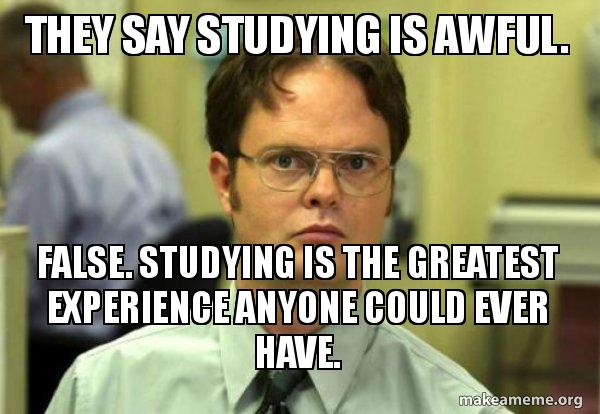Process VS Product
When putting the pieces of a puzzle together there is time and effort going into the puzzle’s construction. There’s always the pre-excitement–going through Amazon or the aisle of a department store and looking at the covers of boxes. There are paintings of landscape reminiscent of Bob Ross or of your favorite movie poster. When you get the puzzle that is 1,000 plus pieces, you know there will be rigorous hours put into it, just to get into the end result. There are people who appreciate the tedious hours and work put into the puzzle. Whether they attack the puzzle alone or with a group, there is a learning curve to puzzles. They come up with their own strategies like getting the border first and then assemble the pieces that are more distinct in the original painting. There is more beauty in the process of making the puzzle than actual puzzle itself.
This can be similar to how instructors should look and value assessment. In “Making the Grade: The Role of Assessment in Authentic Learning” by Marilyn Lombardi, the article addresses how standardized testing can prove to set students up to fail. Even when we look at the SAT and the ACT, the answers are given in a multiple choice format which sets up the notion that only one right answer can be chosen out of 4 or 5 possibilities. In real life problems, there aren’t usually just one solution, but rather there are many of them that could reap different benefits or repercussions.
In the table Lombardi provided on page 6 discusses her viewpoints on Traditional Assessment vs Authentic Assessment. Even the wording on the chart is interesting rhetorically because it implies that traditional assessment is inauthentic, the assessment doesn’t ring true or genuine. In regarding to the previous paragraph, Lombardi compares answers that have a general reliance on forced-choice, written measures (traditional assessment) to answers that promotes integration of various written and performance measures (authentic assessment) which basically states that we won’t be placing students in one confined box.
In terms of my own grading in my English composition class I assess students partly on how well they improve from their original task and their skill set that they come in with. If an essay isn’t “perfect” in my eyes, I’m not going to dock them terribly if I felt like they put time and effort into their papers and saw their drafts got tremendously better over time. I don’t know how this would look exactly in a STEM class, but I’m sure there can be a way to look at performance and improved performance in the classroom. I know that in my high school, my math teacher made us do problems and show our work. Even if we got the answer wrong, she looked at the steps we made. If we were close in our process she wouldn’t completely dock us, but gave us partial credit. I think this viewpoint allowed me to have room for growth in math and not get discouraged if I did get an answer wrong which further emphasizes the point that process and not the product should be valued.

 As a graduate student, my habits became more refined. When I started taking courses that I knew would be useful my career, I made serious efforts at studying terms, taking thorough notes, and connecting information within and between courses. Content I did not believe would be relevant to me or I perceived as busy work received the minimal effort, and work that seemed relevant to my learning and my future career received more time and focus. When possible, I would choose paper and project topics that interested me or allowed me to pull in ideas from other courses. However, I simultaneously found myself motivated to earn good grades.
As a graduate student, my habits became more refined. When I started taking courses that I knew would be useful my career, I made serious efforts at studying terms, taking thorough notes, and connecting information within and between courses. Content I did not believe would be relevant to me or I perceived as busy work received the minimal effort, and work that seemed relevant to my learning and my future career received more time and focus. When possible, I would choose paper and project topics that interested me or allowed me to pull in ideas from other courses. However, I simultaneously found myself motivated to earn good grades.